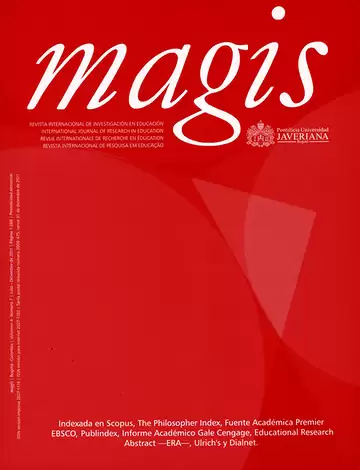Abstract
This text introduces the issues discussed during the event Public thinking:
a tribute to Guillermo Hoyos-Vásquez. The bottom line is the problem of civic education in social movements, which implies considering social movements as platforms for education that are capable of constructing new social realities and emerging subjectivities. This approach to social movements as actors in civic education brings along some fundamental characteristics of the potential of collective actions: a) the reflexive capacity in order to put forward moral criteria to judge and value situations of domination and exclusion naturalized by the systems of power, as unfair situations and to question the politically correct; b) to define the authority of social collectives to communicate relevant experience for the construction of collective memory; c) to explore the possibilities of shaping political identities; d) to emphasize on the emotional repertoire that moves along expressions of struggle and resistance; and e) to understand antagonisms and dissents as political dimensions of collective actions.
Magis, International Journal of Research in Education by Pontificia Universidad Javeriana is registered under a Creative Commons Attribution 4.0 International Public License. Thus, this work may be reproduced, distributed, and publicly shared in digital format, as long as the names of the authors and Pontificia Universidad Javeriana are acknowledged. Others are allowed to quote, adapt, transform, auto-archive, republish, and create based on this material, for any purpose (even commercial ones), provided the authorship is duly acknowledged, a link to the original work is provided, and it is specified if changes have behttps://creativecommons.org/licenses/by/4.0/en made. Pontificia Universidad Javeriana does not hold the rights of published works and the authors are solely responsible for the contents of their works; they keep the moral, intellectual, privacy, and publicity rights.
Approving the intervention of the work (review, copy-editing, translation, layout) and the following outreach, are granted through an use license and not through an assignment of rights. This means the journal and Pontificia Universidad Javeriana cannot be held responsible for any ethical malpractice by the authors. As a consequence of the protection granted by the use license, the journal is not required to publish recantations or modify information already published, unless the errata stems from the editorial management process. Publishing contents in this journal does not generate royalties for contributors.
Creative Commons Attribution 4.0 International Public License


